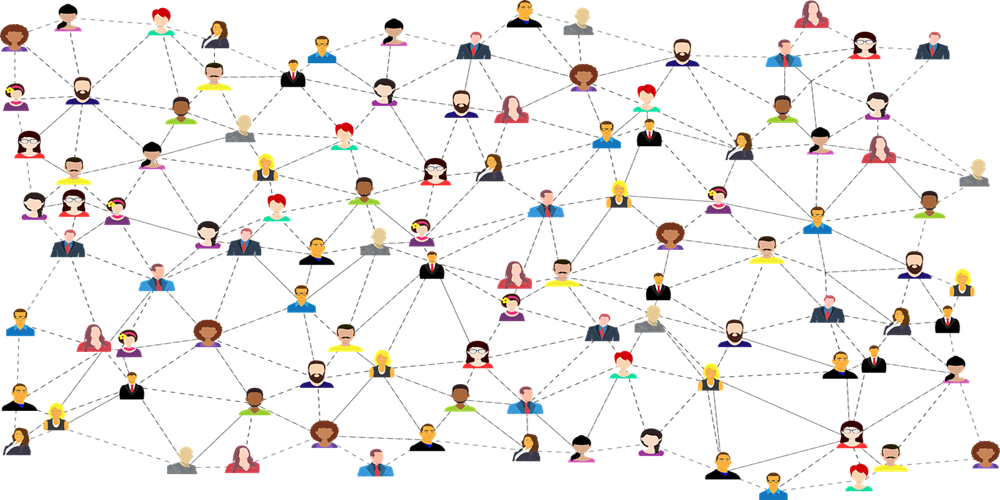In today’s digital age, where connectivity is king and the internet reigns supreme, have you ever wondered who holds the power to pull the plug on this vast network of information? From government censorship to cybersecurity threats, the authority to shut down the internet has become a hotly debated topic. Join us as we dive deep into this fascinating realm of control, contemplating whether it should lie in the hands of governments or if individual freedoms should prevail. Get ready for an eye-opening exploration into the world of power play in our interconnected society.
Introduction to the Internet
The Internet, also known as the World Wide Web, has become an integral part of our daily lives. It serves as a vast network connecting individuals and organizations around the world, facilitating communication, information sharing, and online transactions. From social media platforms to online shopping portals, the internet has revolutionized the way we interact and conduct various tasks.
History of Internet Shutdowns
The history of internet shutdowns dates back to the early days of the internet, when it was primarily used by government agencies and academic institutions. However, as the use of internet became more widespread and essential for communication, commerce, and information sharing, governments started to recognize its potential as a tool for control and censorship.
One of the earliest recorded cases of internet shutdown occurred in 1994 during the Algerian Civil War. The government shut down all telecommunications networks in an effort to silence opposition groups and prevent the spread of information about their actions. This incident sparked a debate on whether governments should have the authority to cut off access to digital communication during times of crisis.
In subsequent years, several countries such as China, Iran, Egypt, and Syria have enforced complete or partial internet shutdowns during protests, elections or national emergencies. In some cases, these shutdowns were aimed at preventing citizens from organizing through social media platforms or accessing external sources of information.
However, with the rise of social media activism and increasing reliance on digital communication in everyday life, governments have adopted a new tactic known as “throttling.” Throttling involves slowing down internet speeds instead of completely shutting them off. This approach allows authorities to maintain control while still providing some degree of connectivity.
In recent years, there has been an alarming increase in government-imposed internet shutdowns around the world. According to Access Now’s Shutdown Tracker Observatory report, there were 213 documented instances of complete or partial network disruptions in 2019 alone . These shutdowns have been reported in various forms, including partial bans on social media platforms, throttling of internet speeds, and complete outages.
Notable Internet Shutdowns
Egypt (2011):
The Egyptian government shut down access to the internet and mobile networks in 2011 during the height of the Arab Spring protests. The shutdown lasted for five days and was aimed at suppressing information about the government’s actions.
Syria (2012):
In 2012, the Syrian government shut down the internet and telecommunications networks for three consecutive days as forces loyal to President Bashar al-Assad launched a major offensive against rebel groups. This incident is believed to be one of the most severe and prolonged internet outages in history.
Uganda (2016):
During Uganda’s presidential elections in 2016, the government ordered a country-wide internet shutdown that lasted for a full day. The shutdown was intended to prevent citizens from accessing social media platforms and messaging apps, which were being used by opposition groups to mobilize supporters.
Current Examples of Internet Shutdowns
Internet shutdowns, also known as “digital blackouts,” occur when governments or authorities deliberately disrupt or restrict access to the internet or specific online services. This can happen for a variety of reasons, including political unrest, national security concerns, and attempts to control information and communication. In recent years, these digital blackouts have become increasingly prevalent across the world with various countries implementing them in different situations.
Here are some current examples of internet shutdowns from around the globe:
1. Myanmar (2021)
On February 1st, 2021, the military in Myanmar staged a coup d’état and overthrew the democratically elected government. In response to nationwide protests against the coup, the military ordered all telecommunications companies to shut down internet access and block social media platforms like Facebook and Twitter. This drastic move was an attempt to stifle communication among anti-coup protesters and prevent them from organizing their demonstrations.
The shutdown lasted for a total of four weeks before limited access was restored on March 2nd, but only through Wi-Fi networks and not cellular data. This has severely impacted businesses that rely on mobile connectivity as well as ordinary citizens who depend on the internet for basic communication.
2. India (2020-2021)
In August 2019, India implemented its first major internet shutdown in Jammu and Kashmir following the revocation of its special autonomous status by the central government. Access to mobile data services was completely blocked for several months before it was restored at a slower speed in January 2020. This shutdown was estimated to have cost the region’s economy over $1 billion.
In January 2021, the Indian government also restricted internet access in several districts in the state of Haryana, surrounding capital city New Delhi, as farmers’ protests against new agricultural laws intensified. The government claimed that the shutdown was necessary to maintain public safety and prevent misinformation from spreading on social media.
3. Ethiopia (2020-2021)
The Ethiopian government has a history of imposing internet shutdowns during times of political turmoil. In June 2019, a nationwide blackout was imposed following an attempted coup against the regional government in Amhara State.
Then in November 2020, after tensions escalated between federal and regional forces in Tigray State, the Ethiopian government imposed another internet shutdown that lasted for months. The lack of connectivity has made it difficult for citizens to access news and information about the escalating conflict and humanitarian crisis in the region.
4. Belarus (August-September 2020)
Following a disputed presidential election that sparked widespread protests, Belarus shut down internet access across the country. The shutdown lasted for three days and was seen as an attempt by authorities to suppress dissent and block communication among protesters organizing via social media platforms .
5. Cameroon (2017-2020)
Since 2017, the government of Cameroon has repeatedly imposed internet shutdowns in the country’s English-speaking regions as a response to protests against the marginalization of minority populations. These region-wide blackouts have severely impacted businesses and disrupted daily life for citizens living in these areas.
In January 2020, internet access was restored after a three-year-long shutdown, but only at a very limited capacity. The government continues to restrict access to social media platforms and messaging apps in these regions.
6. Sudan (June-July 2019)
During an uprising against President Omar al-Bashir’s regime, Sudan experienced a total internet blackout for over a month. The shutdown was employed by the government to quell dissent and prevent communication among protesters organizing demonstrations through social media.
However, despite the blackout, protesters continued to gather and organize using offline methods such as word-of-mouth and physical flyers. In April 2019, al-Bashir was overthrown by the military in a coup d’état. Internet access was restored shortly after his removal from power.
Who Has the Power to Shut Down the Internet?
The internet has become an integral part of our daily lives, connecting people around the globe and providing unlimited access to information and resources. Its vast reach and influence have made it a powerful tool that can bring about significant changes in society. However, with such power also comes the potential for misuse or abuse.
In times of political unrest, natural disasters, or national security threats, governments may consider shutting down the internet as a means of controlling the flow of information or preventing further harm. This raises an important question – who holds the authority to shut down the internet?
Governments
In most countries, governments have the ultimate authority over their country’s telecommunications infrastructure, including the internet. They can enact laws or directives that allow them to shut down any communication networks or services deemed a threat to national security or public safety.
For example, during times of civil unrest or protests, governments may order a shutdown to control the spread of misinformation and prevent further chaos. In some cases, authoritarian regimes may use this power as a means of suppressing dissent and maintaining control over their citizens.
Internet Service Providers (ISPs)
While governments hold legal authority over telecommunication infrastructure, ISPs are responsible for implementing shutdowns. Most countries have multiple ISPs operating in their jurisdiction. Therefore a government would need cooperation from all major providers to achieve a complete shutdown.
ISPs could also face pressure from authorities to comply with shutdown orders due to government regulations or contracts. In some cases, they may even choose to suspend services voluntarily without any legal mandate out of fear of repercussions.
In the US, for instance, the Telecommunications Act of 1996 requires service providers to comply with government requests to suspend or shut down services in emergency situations. However, this law also protects ISPs from any legal liability for disruptions caused by complying with such orders.
International Bodies
There is currently no global governing body that can order a widespread shutdown of the internet. However, international organizations such as the United Nations could theoretically enforce an internet shutdown within their jurisdiction through various means, such as sanctions or treaties.
For example, in 2011, the UN Security Council passed a resolution condemning the use of force against Syrian civilians and calling on all states to prevent “the flow of arms and other related materiel.” This resolution has been interpreted by some countries as authorizing them to disrupt communication networks in Syria.
While not a direct authority over internet shutdowns, international bodies can provide support and guidance in cases where governments may use this power unjustly. They can also help facilitate discussions for developing regulations and protocols for handling internet shutdowns globally.
Legal Framework for Shutting Down the Internet
The Internet has become an integral part of our daily lives, connecting us to the rest of the world and providing us with unlimited access to information. However, in recent times, we have seen instances where governments or authorities have shut down the internet in their respective countries. This begs the question, who holds the authority to shut down the internet?
To answer this question, we need to understand the legal framework surrounding shutting down the internet. The power to control or limit access to online communication is known as “internet shutdowns.” This can be done through a variety of methods such as blocking specific websites, slowing down internet speeds, or cutting off all access completely.
Most countries do not have explicit laws addressing internet shutdowns. However, they may have other laws that give government agencies broad powers over telecommunication networks and services. These laws are often vague and open to interpretation, making it easier for governments to justify shutting down the internet during times of unrest or national security concerns.
In authoritarian regimes where freedom of speech and expression are limited, there may be specific legislation that allows for easy control and censorship of online content. In some cases, these laws may even require service providers to cooperate with government requests for shutdowns without revealing any information.
On the other hand, democratic countries with stronger protections for freedom of speech and expression might not have specific laws on internet shutdowns but will rely on existing legislations such as emergency powers acts. These acts give governments broad powers during emergencies like natural disasters or terrorist threats but can also be used to justify internet shutdowns during periods of political unrest.
International law also plays a role in regulating internet shutdowns. The United Nations has passed a resolution declaring that “The same rights people have offline must also be protected online.” This means that governments should not impose restrictions on the internet that would violate human rights such as freedom of expression, assembly, and association.
However, this resolution is non-binding, and there are no specific laws or mechanisms in place to enforce it. As a result, governments continue to shut down the internet without consequence.
Another international instrument that addresses internet shutdowns is the African Declaration on Internet Rights and Freedoms. It explicitly recognizes access to the internet as a fundamental human right and calls for governments to refrain from shutting down or disrupting access to the internet.
Despite these international efforts, governments still exercise their power to shut down the internet when they deem it necessary. This raises concerns about accountability and transparency, as many internet shutdowns occur without prior notice or explanation.
Implications and Consequences of Internet Shutdowns
Internet shutdowns, also known as network disruptions or internet blackouts, occur when a government or other entity intentionally disrupts the internet access in a specific region, country, or even globally. This practice has been on the rise in recent years and has raised serious concerns about the implications and consequences for human rights, democracy, and economy.
Implications on Human Rights:
The right to access information is recognized as a fundamental human right by the United Nations. Internet shutdowns severely restrict this right, preventing people from accessing vital information, communication channels, and services such as banking and healthcare. In some cases, it may even hinder emergency response efforts during natural disasters or political unrest.
Moreover, these shutdowns often go hand-in-hand with other human rights violations such as arresting citizens for expressing dissenting opinions online or suppressing freedom of speech. These actions can lead to detentions without due process and further curtailment of basic rights.
Consequences on Democracy:
The internet serves as an essential tool for promoting democracy by providing a platform for free expression and facilitating public participation in governance. However, shutting down the internet hinders citizens’ ability to freely express their opinions online and access accurate information about their governments’ actions.
In addition, social media platforms have become one of the main avenues for organizing protests and mobilizing support for political causes. As seen during the Arab Spring uprisings in 2011, governments resorted to shutting down the internet to quell protests and suppress dissenting voices.
Moreover, election campaigns and voting processes heavily rely on the internet, and shutting it down can impede fair and transparent elections. It also disrupts the work of journalists, election observers, and civil society organizations that monitor elections.
Economic Consequences:
Internet shutdowns have significant economic consequences, particularly for countries that heavily rely on digital services. Shutting down the internet can severely disrupt businesses and e-commerce activities, resulting in significant financial losses. For instance, during a three-day internet shutdown in Sudan in 2019, the country’s economy suffered an estimated loss of $1 billion.
Furthermore, internet shutdowns also affect employment opportunities as online services such as freelancing and remote work become inaccessible. This can disproportionately affect small businesses and freelance workers who depend solely on online platforms to earn a living.
In addition, Internet shutdowns deter foreign investment and business operations in countries where they occur. Companies need stable internet access to operate effectively and may reconsider investments or expansions in countries with a history of frequent shutdowns.
Conclusion
The internet has become a vital tool for communication, business, and daily life. However, in times of crisis or unrest, the question of who holds the authority to shut down or control access to the internet arises. While governments may have legitimate reasons for wanting to regulate online activity, it should be done with careful consideration and respect for citizens’ rights. Ultimately, it is important that a balance is struck between maintaining national security and protecting individual freedoms online. As technology continues to evolve, so too must our approach towards its regulation and use in order to uphold democracy and promote open communication on a global scale.



































